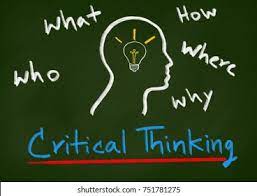Thematic Unit: Heroism in the Face of Genocide:
WWII and Native Americans
In this unit we will explore the idea of a hero and heroic behavior. We
encounter the idea of heroes all the time in the news, in movies, books,
comics, video games, and art. Genocide has been a tool of human
societies for centuries. Two of the most well-known examples are the
treatment of the community of Jewish people in Europe. Less well known
is the policy of extermination that was put in place by U.S. President
Andrew Jackson. Many of us have friends or family touched by these
events, or at least the reports of such atrocities.
The heroes in these events are sometimes everyday people or the
high-level military or political leaders. We will read, view and write
about the perspectives presented by the mix of first-hand experiences,
written commentary and video footage. Because writing is a reflection of
thinking, we will practice putting into words what this information
suggests to each person. In this class there is no one and only right
way to respond, only individual thinking each person can support with
clear, sound reasoning and evidence.
Essential Questions to Guide and Suggest Ideas to Research
-
How is “The Hero’s Journey” relevant in many ways of thinking and fields of study?
-
Why would anyone dislike an entire group of people?
-
What would it feel like to be part of a hated group?
-
What might be a solution to this kind of discrimination?
-
What is accomplished when these kinds of policies are carried out?
Reflecting: The Importance of Re-Thinking Things Through
While it sounds formal, ‘reflection’ simply means to ‘think again’
about something that happened. Reflection is a natural part of learning
and in many cases doesn’t even need to be ‘promoted.” Given time and
social interaction, students (and adults) tend to talk about experiences
and learn from that kind of reflection.
“Why this is true is a deeper dive, but it’s clear that when the
brain ‘experiences’ something, it doesn’t necessarily ‘see it’
accurately. That is, perspective, mindset, background knowledge,
emotional well-being, setting, social context, and more all affect now
just ‘how’ we experience
an event but even what parts of the event we even experience–or
remember–at all. Consider watching a movie for the first time.
Because you don’t know what’s going to happen, your brain ‘experiences’
the story with anticipation and pattern-making, trying to relate to the
characters while ‘following’ what might happen. Watch the movie a second
time, however, and you’ll ‘see it’ completely differently.” (Thematic
Unit Guidelines)
The "movies in the mind" that “play” as we think things thorough,
revisit the past, imagine the future, have so much to show us about our
reality. Artists are often guided by paying attention to that stream of
information and images. This information is essential to our
understanding of our world and new information. Tracking all this data
in our own minds is as important as body health. Writing is a simple and
available way to record what is going on that we often pay little
attention to. So, writing will be a large part of this class on rhetoric
(styles of writing) and critical thinking (the instinct/art of
questioning).
